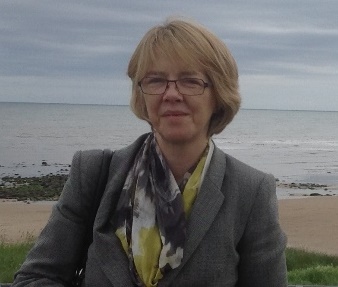 |
Dr Caroline Williams (photo), President of the Society for Latin American Studies (SLAS) and Patience Schell, Chair in Hispanic Studies at the University of Aberdeen and lead organizer of SLAS 2015
Your 51st Annual Conference of the Society for Latin American Studies (SLAS) will kick off on April 17. Why did you choose the theme: “Autonomy”?
The call for papers was issued during the historic 2014 referendum campaign in Scotland and, since the theme of "autonomy" has such importance in Latin America, for indigenous rights and debates about cultural autonomy, as well, it seemed like a useful link to make.
Moreover, the global attention paid to Scotland during the referendum campaign was precisely because issues of ‘autonomy’ are at the heart of so many political, cultural and social debates, in Latin America and beyond.
Is your conference also of social and cultural resonance?
The debates and discussions held at SLAS cover the wide range of Latin American Studies in the Humanities and Social Sciences. The research presented here helps contribute to debates about issues of social and cultural relevance. It is also of social and cultural relevance for the City of Aberdeen, and the University of Aberdeen, as it’s a fantastic opportunity to bring people here who are unfamiliar with all that this region has to offer.
For your SLAS Conference 2015 you have chosen Aberdeen. Why?
The Society for Latin American Society traditionally holds its annual conference in different parts of the UK. We rely on the effort and good will of local organizers, while also seeking to support them in showcasing the strength and vitality of Latin American studies in their own universities and cities. The last three SLAS conferences have been held in London (50th Anniversary), Manchester and Sheffield, and we have not met in Scotland since the St Andrews conference in 2011.
Aberdeen is an excellent location for the 2015 conference. It has a strong and committed team of Latin Americanists. It offers undergraduate pathways in Latin American Studies as well as an MSc in Latin American Studies that draws on the expertise of staff in the School of Modern Languages and in Politics and International Relations.
For those delegates who cannot join you in Scotland. Can they participate remotely?
At present, SLAS it is not possible for delegates to participate in the conference remotely.
What are the main challenges for SLAS these days?
One of the key challenges that SLAS has faced in the last two years has been the introduction of Open Access (OA), due to its potential impact on our journal, the Bulletin of Latin American Studies, and in turn on the financial wellbeing of the Society. For a learned society of the size of SLAS – we have approximately 400 members – the principal issue of concern was the effect that a decline in revenue would have on the events and activities that we support, and most particularly on the grants which we award to postgraduate students (bursaries, conference grants, and travel grants) and Latin American scholars attending the annual conference.
While we remain alert to OA and its effects, SLAS, BLAR and PILAS (Postgraduates in Latin American Studies, affiliated to SLAS) began the year 2014-15 in a healthy state, in terms of membership, grants and activities, and in the case of BLAR, renewals. Maintaining our financial position, expanding our membership, and building links with sister organisations in Europe are some of the issues that are central to the work of SLAS committee.
The Society for Latin American Studies (SLAS) was founded in 1964 and is one of the leading Latin American studies organizations in Europe. It holds an annual conference in March/April, and publishes the Bulletin of Latin American Research (BLAR). SLAS has around 400 members. While most are academics and PhD students, members also include diplomats, journalists, and research analysts from business and non-governmental organizations. SLAS members deepen knowledge and understanding about Latin America, primarily through engaging in field research and theoretical enquiry. www.slas.org.uk